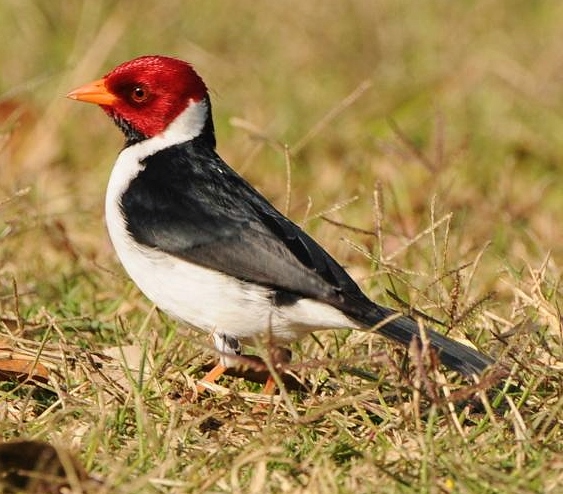 |
| Photo by Tadeusz Stawarczyk (Internet Bird Collection) |
Common name:
yellow-billed cardinal (en); cardeal-do-pantanal (pt); paroare à bec jaune (fr); cardenilla (es); mantelkardinal (de)
Taxonomy:
Order Passeriformes
Family Emberizidae
Range:
This species is found in south-western Brazil, especially in Mato Grosso and Mato Grosso do Sul, and also in Paraguay and north-eastern Argentina, and marginally into southern Bolivia. The yellow-billed cardinal has been introduced to Hawaii.
Size:
These birds are 15-16,5 cm long.
Habitat:
The yellow-billed cardinal is mostly found in moist scrublands, especially near swamps and marshes, and also in wet grasslands and along the shores of rivers and lakes. They are present from sea level up to an altitude of 500 m.
Diet:
They eat various seeds, fruits and invertebrates.
Breeding:
Yellow-billed cardinals breed in October-February. The nest is a deep cup made of plant fibres and lined with rootlets and hair. It is placed low in a small tree or scrub. The female lays 2-4 white or cream-coloured eggs with brown streaks, which she incubates alone for 13-15 days. The chicks fledge 10-15 days after hatching. Each pair can raise 2-4 broods per season.
Conservation:
IUCN status – LC (Least Concern)
This species has a very large breeding range and is described as common. The population is suspected to be stable in the absence of evidence for any declines or substantial threats.







